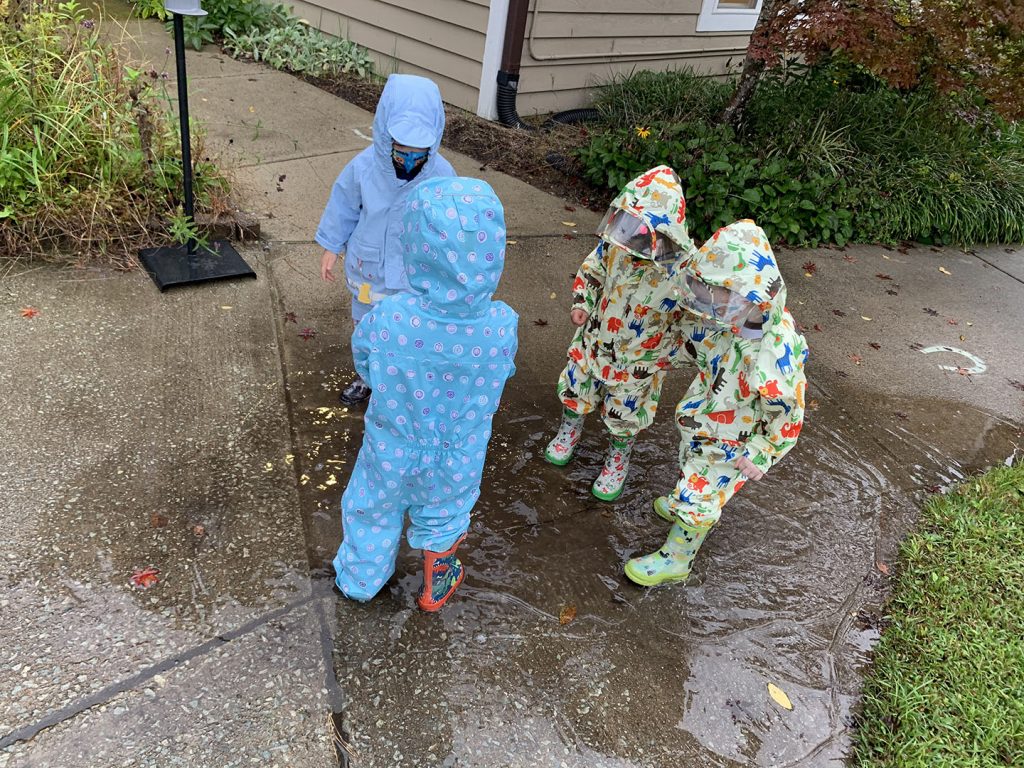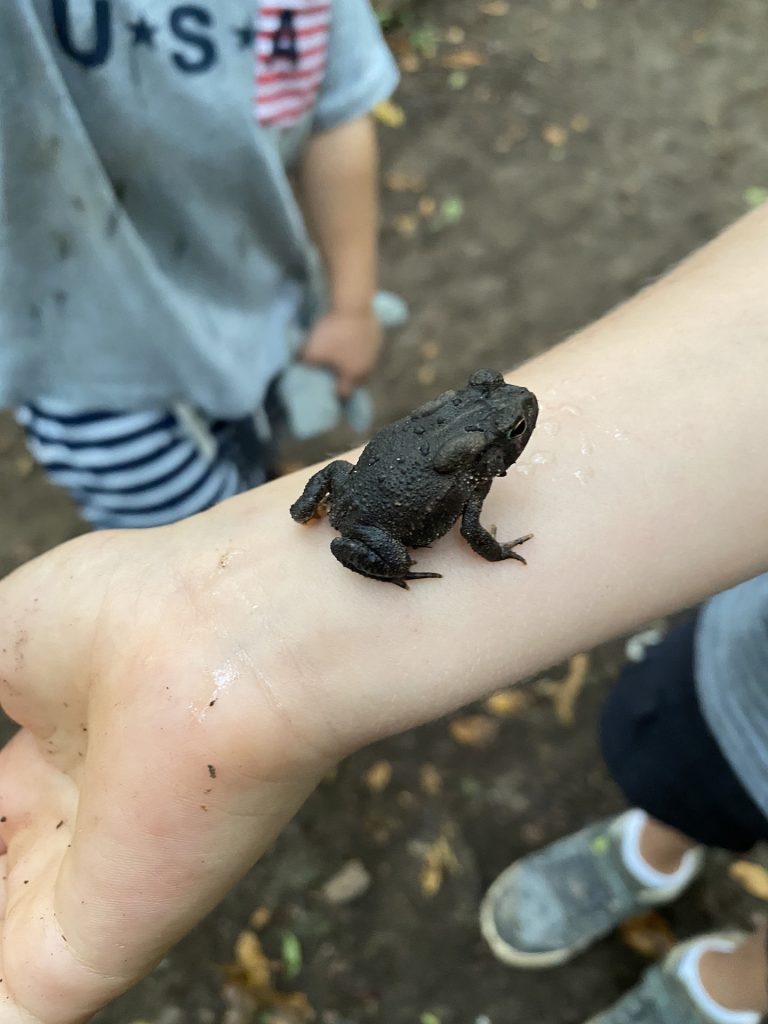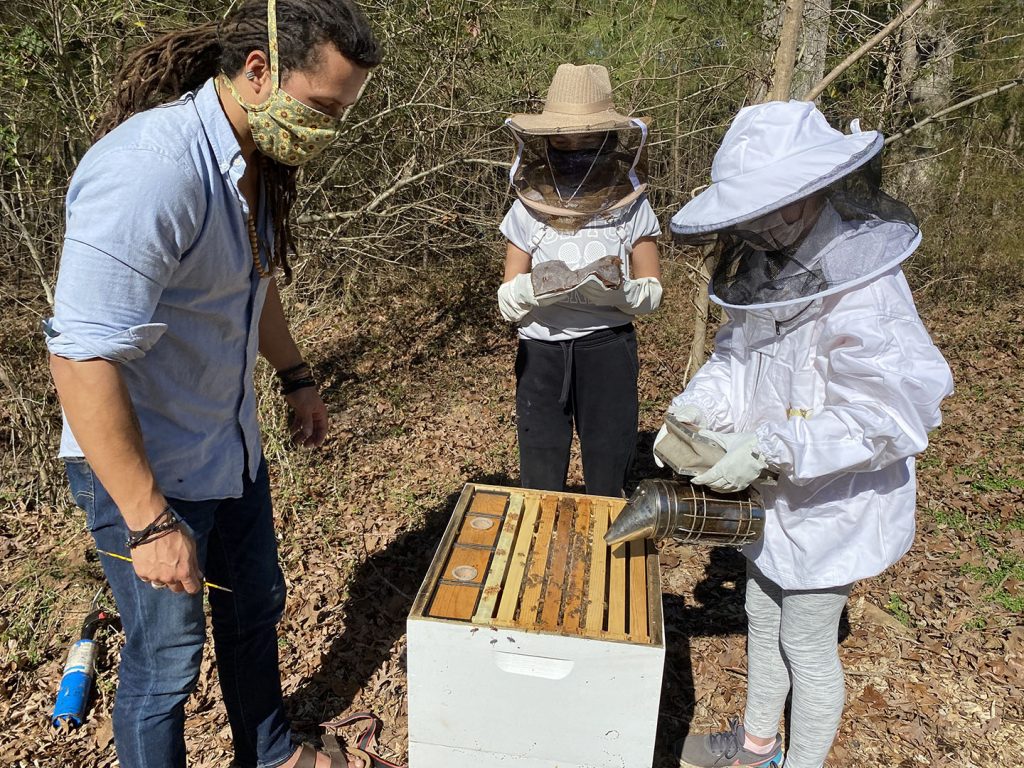Outdoor Learning
Dr. Montessori believed that the outdoor environment is a natural extension of the classroom. In our outdoor environments, children are able to build on their classroom knowledge through the sensorial experiences of nature and through constant contact with the seasons and the natural world. It is through these interactions with the outdoor environment that MCS is able to support the whole child.
As children become more aware of nature, they are better able to understand the needs of the world around them and how they can make a difference.
At the Toddler Level: Children go on walks around the campus, observing nature, finding frogs, plant life and many other exciting things.
At the Primary Level: Children enjoy outdoor learning environments created to inspire imagination and the excitement found in nature. Each classroom has garden areas that the children tend. Primary teachers regularly take small groups of children out to pot plants, weed and dig, water plants from the rain barrels and fill birdfeeders. On nice days, students are invited to enjoy working outside on picnic tables and take in fresh air on nature walks around the campus.
At the Elementary Level: Elementary students enjoy outdoor learning around campus. They use gardens behind their classrooms to classify flowers and study the parts of a flower. They also use the gardens to sketch flowers and study their parts, as a meeting place for discussion groups and as a peaceful place to work. The children utilize the rest of campus for leaf classification and the study of the different types of stems: herbaceous, woody, tendril climbers, etc., and for inspiration during poetry studies.
At the Adolescent Level: The adolescent students use outdoor environments in a variety of ways to enhance their curriculum. The students raise plants from seed and tend the school’s vegetable and herb garden year-round. Food from the garden is harvested and used for community meals. The garden also serves as a learning environment for soil testing, composting, crop rotation, and plant fertility. The wetlands are used for specific scientific studies, such as measuring dissolved oxygen in the water. In Writer’s Workshop, they use the environments and surrounding woods to inspire poetry about nature.
Wetlands: The MCS wetlands provide our entire community – from the youngest children to adults and staff – with an easily accessible, natural, native, self-regulating, prepared environment that allows individuals and groups to:
- encourage developmentally appropriate independent exploration
- explore with all senses
- foster scientific inquiry
- establish a spiritual connection with nature
- derive creative inspiration



